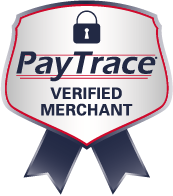We’re pleased to offer a free digital marketing consultation. Call today, (303) 357-5757, or e-mail dbc@dbcdigital.com.
In any content marketing plan, there are some basic tools you will need not only for content marketing success, but to make your marketing life easier in the process. These essential tools will help with everything from measuring your metrics to getting the job done efficiently. Preparing yourself for implementation and customization of these tools is the beginning to starting your digital marketing journey off right.
While there are plenty of content marketing resources available, you may become overwhelmed, and end up getting more or less than you need. But fear not, start off with these basics and you’ll be covered from the beginning.
1. Analytics Tools
There must be a method in place to measure your content marketing results, that’s where analytics tools come in. Google Analytics is probably the best known and popular analytics tool available. And it’s very affordable since it is free! No matter where you begin, Google Analytics should be installed and set up properly to measure your goals, traffic volume, engagement, and traffic sources. It is a tool that is extremely powerful and useful when implemented and utilized the right way.
There are many other paid analytics tools such as Tableau, Omniture and Adobe Marketing Suite. These analytics tools have more advanced features and until you absolutely know you need more out of your analytics tools, stick with Google Analytics and use it to its full capability before opting for the more expensive solutions.
In addition to Google Analytics, most platforms have some form of analytics included. Social media networks such as Twitter, Facebook, YouTube, Pinterest, etc. have free analytics tools available as well, however, in some cases, you may need a minimum size of audience or a business account in order to use them.
The most important part in utilizing these tools is integrating them correctly, and knowing how to use them to get the precise content marketing metrics you need. If you have an in-house marketing team or are a marketing individual, it is important for them to become very versed in implementing and using analytics tools. Or, if you are using a content marketing partner or digital marketing agency, they will have resources to assist with implementation, setup and data reporting.
2. Email Marketing Platform
Part of an effective marketing program is email marketing integration. Email marketing is used to follow up with your leads as well as nurture them with a series of emails. In addition, you will want to add your leads to email lists for updates, special promotions, newsletters, announcements, and other communications that will keep your audience engaged both before and after you convert your lead to a customer.
While it is possible to do this through your day-to-day email software, you risk having your emails go into your recipient’s spam folder. We urge you use an email platform designed for larger volumes of emails. These platforms are better for organizing, scheduling and automating your emails because they are made for this purpose.
Some examples of email platforms to use for email marketing campaigns are:
- MailChimp
- Constant Contact
- Active Campaign
- AWeber
- Vertical Response
Most of these email marketing platforms have a free version that you can use and then upgrade to paid versions according to the volume of emails you are sending, the automation you need, and the reporting you want as well as the size of your email list.
3. CRM (Customer Retention Management) Tools
As you collect leads from your content marketing efforts, managing these leads is essential, especially right from the start. You will not only want to keep track of the leads and their status, but CRMs are very useful for gathering data over time to help gain insights into your content marketing efforts.
As an example, you can integrate tracking codes into your forms that send data directly to your CRM. You can then utilize the data for learning more about your lead process such as the average time it takes for your leads to convert to a customer, the top sources that your leads come from, which landing pages and content work the best, and many more insightful metrics.
A few of the most popular CRMs available are:
- Salesforce
- HubSpot CRM
- Zoho
Once again, there are many solutions that range in price from free to very expensive depending on your needs for digital and traditional marketing.
4. Content Marketing Management
 To successfully plan and manage your content marketing program, you will need tools to organize the many components. A few examples of the content marketing tools you will need to manage include media and publishing calendars, asset cataloging and management, and social media and promotion management.
To successfully plan and manage your content marketing program, you will need tools to organize the many components. A few examples of the content marketing tools you will need to manage include media and publishing calendars, asset cataloging and management, and social media and promotion management.
The tools used by digital marketers for content marketing management vary a great deal from company to company and agency to agency. A popular mode of managing content is by utilizing spreadsheet software such as Microsoft Excel or Google Docs. Then there are more advanced spreadsheet tools like AirTable that add efficiencies and capabilities to normal spreadsheets.
Other options for content marketing management are utilizing collaboration tools such as Trello and platform based content marketing tools such as HubSpot, Kapost and Uberflip. Take some time to think about the capabilities you need from a content management tool, as researching and choosing the one that is right for you takes a fair amount of time. When in doubt, begin with using spreadsheets, and you will quickly build your wish list of capabilities once you have your content management process in place.
5. Social Media Management Tools
 Much like content marketing management, you will need a social media management tool. The social media management tool may be the same tool you use for content management, but there are also tools available that are made specifically for social media management.
Much like content marketing management, you will need a social media management tool. The social media management tool may be the same tool you use for content management, but there are also tools available that are made specifically for social media management.
Social media management tools help you to monitor, engage and organize your social media posts. You can also schedule your posts ahead of time which makes life much easier when managing multiple social media properties.
Spreadsheets and collaboration platforms can be utilized for managing your social media efforts, but utilizing a social media management platform to create dashboards to manage multiple properties is highly recommended.
Top social media management platforms include:
- Hootsuite
- Buffer
- Sprinklr
As you begin to realize all of the tools you need for digital marketing success, you will find that there are plenty of options to choose from, thus determining the specific needs for your company and your digital marketing plans is going to be unique.
When in doubt, utilize free tools that serve multiple functions in order to minimize your marketing stack. And, when you employ a professional Digital Marketing Agency for your content marketing such as DBC Digital, we will help you to determine the mix of marketing tools that specifically meet your needs.
Contact us today for a free digital marketing consultation and learn how we can partner for digital marketing success.
DBC Digital is a full-service digital marketing company that provides everything you need to run successful content marketing campaigns. We’re located in the Denver metro area, just south of the Denver Tech Center, near I-25 and Dry Creek Road. We provide marketing services for businesses and organizations throughout the United States.


